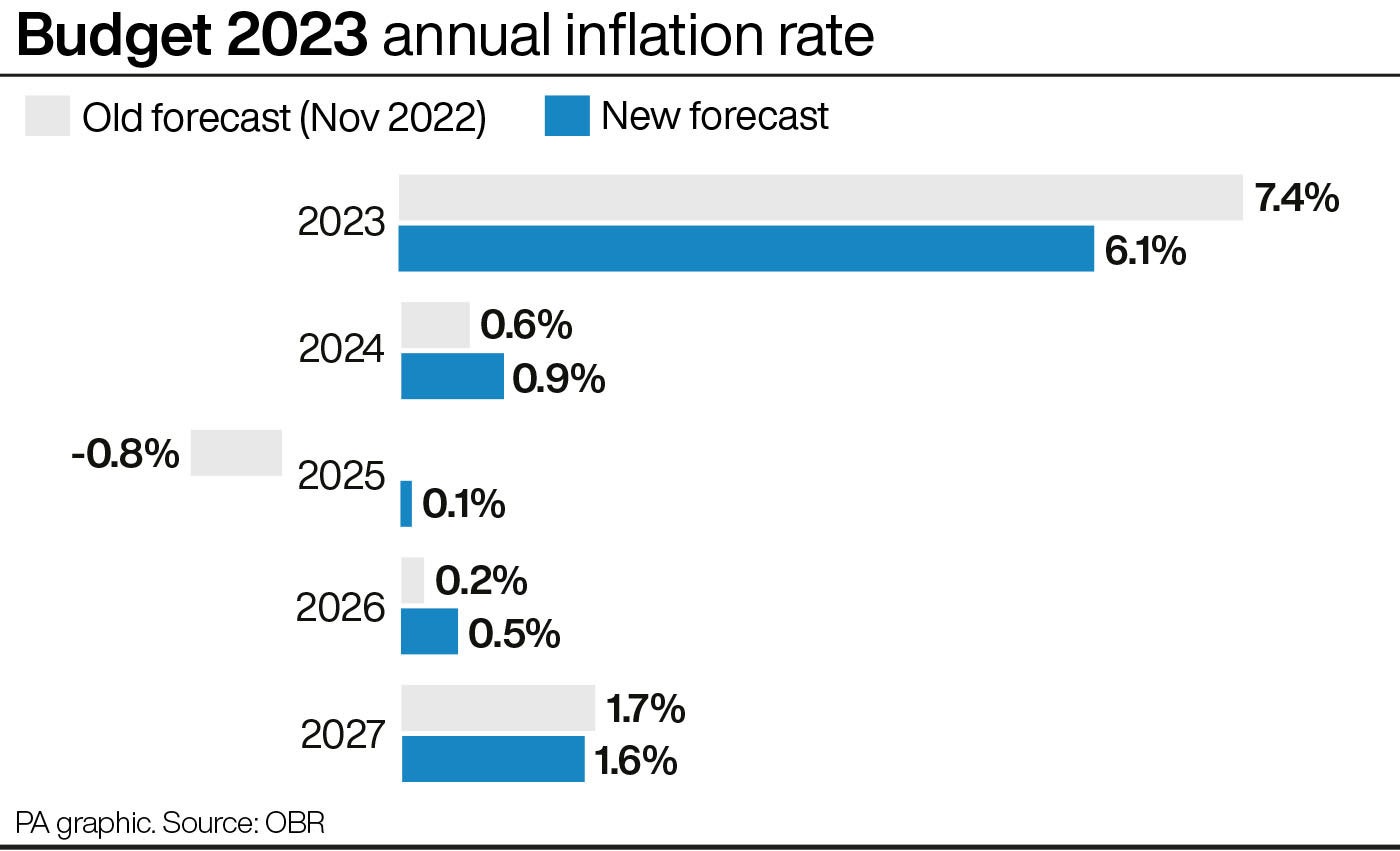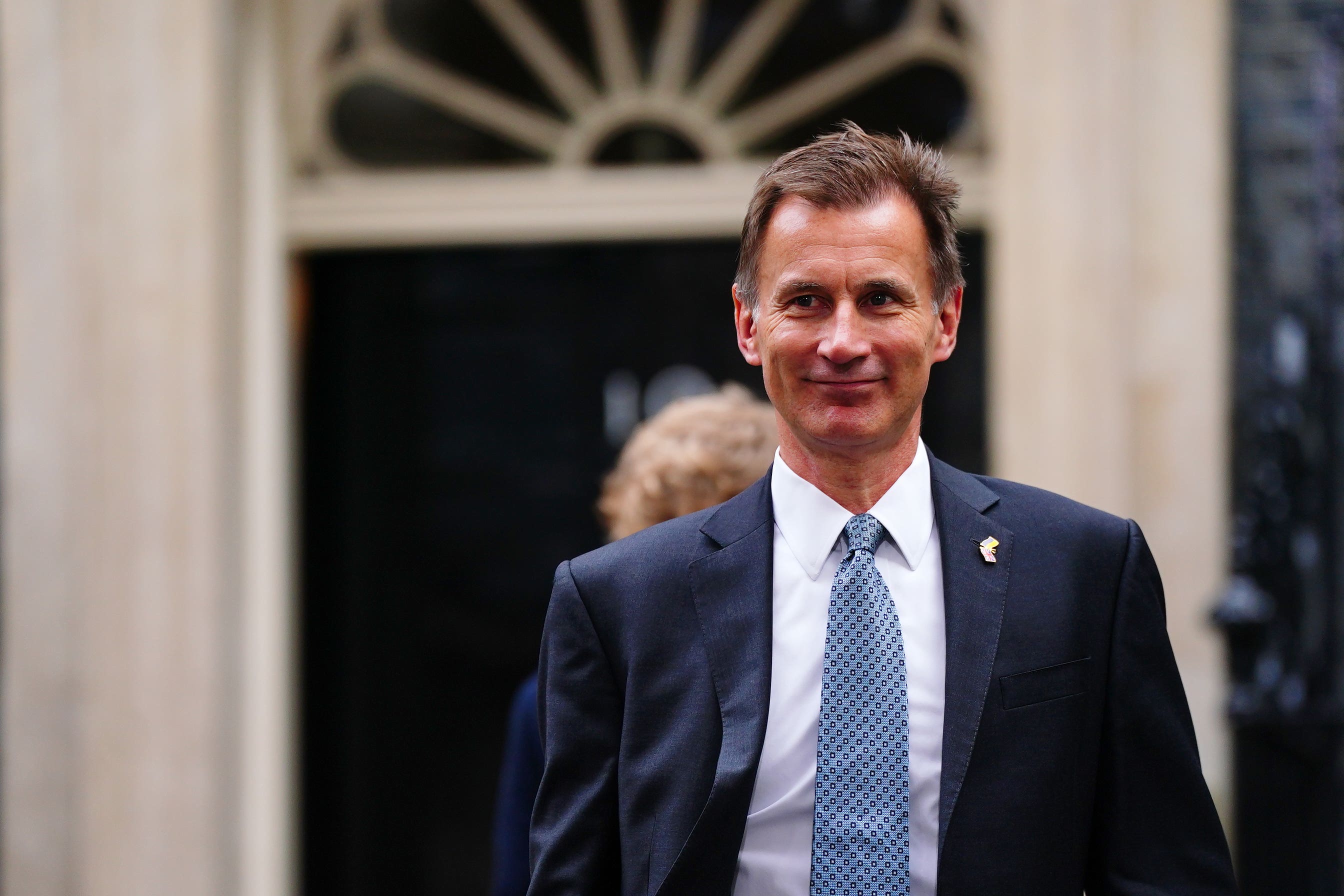How Jeremy Hunt’s pension tax changes will affect you
Chancellor confirms pensions annual tax-free allowance will increase by 50 per cent and abolishes lifetime allowance limit
Chancellor Jeremy Hunt made major changes to how pension savings work when he set out his Spring Budget to MPs in parliament.
Mr Hunt increased the pensions annual tax-free allowance by 50 per cent from £40,000 to £60,000. He also abolished the lifetime allowance limit (LTA), previously set at £1m, in changes that will affect some of the wealthiest people in the country.
The chancellor said the move would encourage NHS doctors, consultants and other high-earners to remain in the workforce for longer.
He said: “I have listened to the concerns of many senior NHS clinicians who say unpredictable pension tax charges are making them leave the NHS just when they are needed most.
“The NHS is our biggest employer, and we will shortly publish the long-term workforce plan I promised in the Autumn Statement. But ahead of that I do not want any doctor to retire early because of the way pension taxes work."
He added: "As chancellor, I have realised the issue goes wider than doctors. No one should be pushed out of the workforce for tax reasons. So today I will increase the pensions’ annual tax-free allowance by 50 per cent from £40,000 to £60,000.
“Some have also asked me to increase the lifetime allowance from its £1 million limit. But I have decided not to do that.
"Instead I will go further and abolish the lifetime allowance altogether."
Mr Hunt said the changes would "stop over 80 per cent of NHS doctors from receiving a tax charge" and incentivise "our most experienced and productive workers to stay in work for longer".
Who is eligible?
The changes will affect those who pay more than £40,000 into their pension annually or have saved more than £1.07 in their lifetime.
Get a free fractional share worth up to £100.
Capital at risk.
Terms and conditions apply.
ADVERTISEMENT
Get a free fractional share worth up to £100.
Capital at risk.
Terms and conditions apply.
ADVERTISEMENT
Only 8,000 people across the UK have saved more than £1m in their lifetime.
Just 1 per cent of workers, meanwhile, save more than £40,000 per year, according to government figures.

Labour leader Keir Starmer said the announcement on pensions was a “huge giveaway to some of the very wealthiest people in the UK”.
"The only permanent tax cut in the budget is for the richest 1 per cent. How can that possibly be a priority for this government?" he told MPs in his response to the Budget.
How much will it cost the Treasury?
Abolishing the LTA for people with £1m in their pension pots will cost the Treasury £2.75bn over the next five years, James Kirkup, director of the Social Market Foundation, said.
“Abolishing the Lifetime Allowance will cost the Treasury around £2.75 billion over five years, while benefiting only the small group of workers fortunate enough to have pension pots worth more than £1 million,” he said.
“Most of those workers are doctors, so this might help with NHS staff retention, but it’s a lot of money to allocate to a small number of people with huge pensions – at a time when the government’s own figures show more than 12 million people aren’t saving enough into pensions to deliver a decent retirement.
“Instead of piecemeal reform that benefits a handful of very rich people, there should be a wider review of the tax treatment of pensions that encourages higher pension savings for millions of workers who will rely on private pensions when they reach retirement.”
How much can you earn?

The LTA is the total amount of money you can build up in a workplace benefit pension scheme and the savings in a defined contribution pension before you must pay tax.
Increasing the allowance means that people could avoid paying as much as £180,000 in tax on their pension pots when they draw the money.
The pension lifetime allowance was first applied in 2006 when it was set at £1.5 million.
It rose to a peak of £1.8 million by 2012 before gradually being cut and was due to stay at £1.07 million until 2026.
Under the new plans announced on Wednesday, there is no limit on how much you can save in your pension over your lifetime.

Why has the government made changes?
In his Bloomberg speech earlier this year, Mr Hunt vowed to consider measures that would help the over-50s who had taken early retirement during or after Covid-19 to return to work.
Speaking in January, he said employment levels were lower than they were before the coronavirus pandemic by around 300,000 people.
Mr Hunt said: “So, to those who retired early after the pandemic, or haven’t found the right role after furlough, I say: Britain needs you.
“And we will look at the conditions necessary to make work worth your while.”
What is the MPAA?
The money purchase annual allowance (MPAA) counters an individual using the flexibilities around accessing a money purchase pension arrangement as means to avoid tax on their current earnings, by diverting their salary into their pension scheme, gaining tax relief, and then effectively withdrawing 25 per cent tax-free.
It also restricts the extent to which individuals can gain a second round of tax relief by withdrawing savings and reinvesting them into their pension.
The MPAA is currently £10,000 and applies to individuals who have flexibly accessed their money purchase pension savings.
Mr Hunt said he would reform the MPAA.
Nutmeg, an online investment management service, said: “Pensions are awash with jargon and quirks in the rules, many of which are poorly understood by the public at large. These changes put the spotlight on the Money Purchase Annual Allowance, which limits how much some people can contribute to a pension after they have dipped into their nest egg.
“Each person has an annual allowance for how much they can contribute tax-efficiently to their pension each tax year, but for those who’ve ‘triggered’ the MPAA the amount drops. That means people are limited in how much more they can build for retirement.
“The MPAA is designed to prevent people from gaming pensions rules by getting tax relief on their pension contributions, withdrawing money and then putting it back into their pension to receive tax relief again. When this is planned and done deliberately, it’s called ‘pension recycling’, but it’s also fair to say the rules around triggering the MPAA are complex and not well understood.
Join our commenting forum
Join thought-provoking conversations, follow other Independent readers and see their replies
Comments



Bookmark popover
Removed from bookmarks